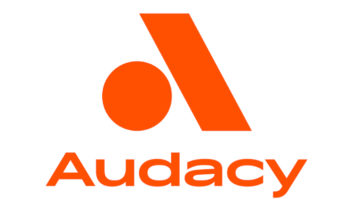“Here is my take,” Lee Tabor e-mailed me.
“I am a subscriber [of] XM Radio. I love it. If it is true that allowing XM and Sirius to merge would truly be a monopoly, then why is the National Association of Broadcasters complaining so vociferously?
“I’ll tell you why,” he continues. “It is because the true competition of satellite radio is terrestrial radio. If it weren’t the case, then why is the NAB complaining so much?
“I don’t hear automakers complaining; that is because they don’t compete with satellite radio.
“I don’t hear cigarette manufacturers complaining; that is because they don’t compete with satellite radio.
“I don’t hear Wal-Mart complaining; that is because they don’t compete with satellite radio.
“You should be honest, because it is too easy to see through your logic,” he continued. “You and the NAB have no interest in what is best for anyone outside of yourselves, yet you claim you have the best interest of all Americans at heart. Be aware that we are not as stupid as you take us for, and we know what we want.
“If free terrestrial radio is so good, and so good for America, then why is it that 15 million of us are willing to pay for what we could have for free? It is because terrestrial radio sucks, and it is clear that you are terrified of satellite radio, because it truly is your competition.
“My name is Lee Tabor, and I build houses for a living,” he concludes. “I live in Victorville, Calif., and I’ll take you on anytime.”
* * *
A lot of people agree with Tabor, if not quite so confrontationally. It’s not pleasant to receive a “put up your dukes” from a guy who builds houses and wants to rumble with me, even when he lives as far away as California; but the fact is that Tabor is not alone in his feeling about satellite. Emotions run high.
It’s too bad he attributes such cynicism to my March 28 editorial about the merger, which was widely circulated and mentioned by NAB in its own newsletter. In fact, as I noted then, I favored the concept of satellite radio, and said so against the wishes of many broadcasters when it launched.
Satellite has been good for the U.S. radio industry and consumers; it has pushed our industry to improve, without question. I have no doubt NAB and many broadcasters oppose this merger for their own business interests, some of which are more valid than others. I’m not stupid, nor do I think Lee Tabor is.
I oppose the merger for other reasons. The issues are whether allowing this monopoly within the pay radio market respects the conditions under which the service was launched, and whether it is good for you and for me as consumers. It is not.
There’s no question satellite services compete with radio; Mary Quass, head of NRG Media in Iowa and a member of the NAB Radio Board, had it right when she told members of Congress, “Radio broadcasters do not compete in the national market of the satellite radio companies, but XM and Sirius do compete in the local radio markets.”
Now, if you want to approve the merger and also give Clear Channel and CBS the right to establish national broadcast services, OK then. I certainly don’t advocate that path. But don’t laugh. If the merger goes through, I predict you’ll see big efforts to justify dramatic easing of current ownership limits on local broadcasters, and not little tweaks in local market caps.
Hey, here’s a thought: Approve the merger, but also allow Clear Channel to crank up WLW to a half-million watts again. Why not? How is a national WLW with an antenna in Ohio different from a national XM with an antenna in the sky? If you accept the argument that satellite services compete nationally with local radio, maybe that’s exactly what regulators should allow.
From satellite’s inception I found it ironic that many supporters chose to ignore its big-business nature. Talking to some of these fans, you’d think XM and Sirius had been started up by the “Coalition for Micro Radio” or “Radio Free Everybody.”
Folks, listen up: XM and Sirius are “big consolidated radio” and have been from the day they were launched. They are multibillion-dollar corporations that want to merge into an even bigger multibillion dollar corporation. Competition with each other has driven them to produce a decent product. But what you profess to hate elsewhere on radio is what they will become under this merger.
Unfortunately, Lee Tabor makes another point with his e-mail. Commercial U.S. radio allowed the quality of its programming to slip so much over a decade that the phrase “radio sucks” has become part of the vernacular. The proposed merger would be a lot easier to argue against if radio had been a better steward of its spectrum since the mid-1990s. He’s certainly right about that.
However, one of the radio executives responsible for terrestrial radio as it exists today is the person trying hardest to merge XM and Sirius, a man who made his national mark at CBS/Infinity Radio. Lee, if you like what you hear on the satellite now, you might wish to oppose this merger. Because if it goes through, what you should expect are more ads, less program choice and higher rates.









